
Advanced & Elective Courses

Advanced Courses
2024 Fall-Winter Classes
Elective Courses
Boat Handling
Marine Navigation
Advanced Marine Navigation
Electronic Navigation
Offshore Navigation
Celestial Navigation
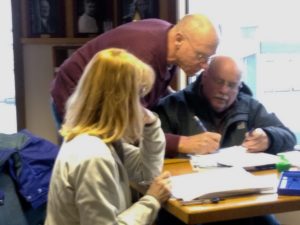


ADVANCED COURSES
ELECTIVE COURSES
For Course descriptions scroll below.
Should you have any questions please contact us through the CONTACT EDUCATION page and we will respond in a timely manner.
Engine Maintenance
Marine Electrical Systems
Marine Communication Systems
Electronic Navigation
Cruising & Cruise Planning
Sail Boats & Sailing Theory
Weather
Instructor Development
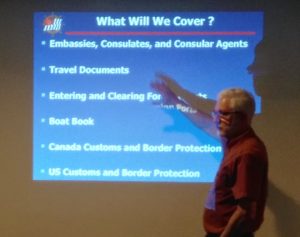
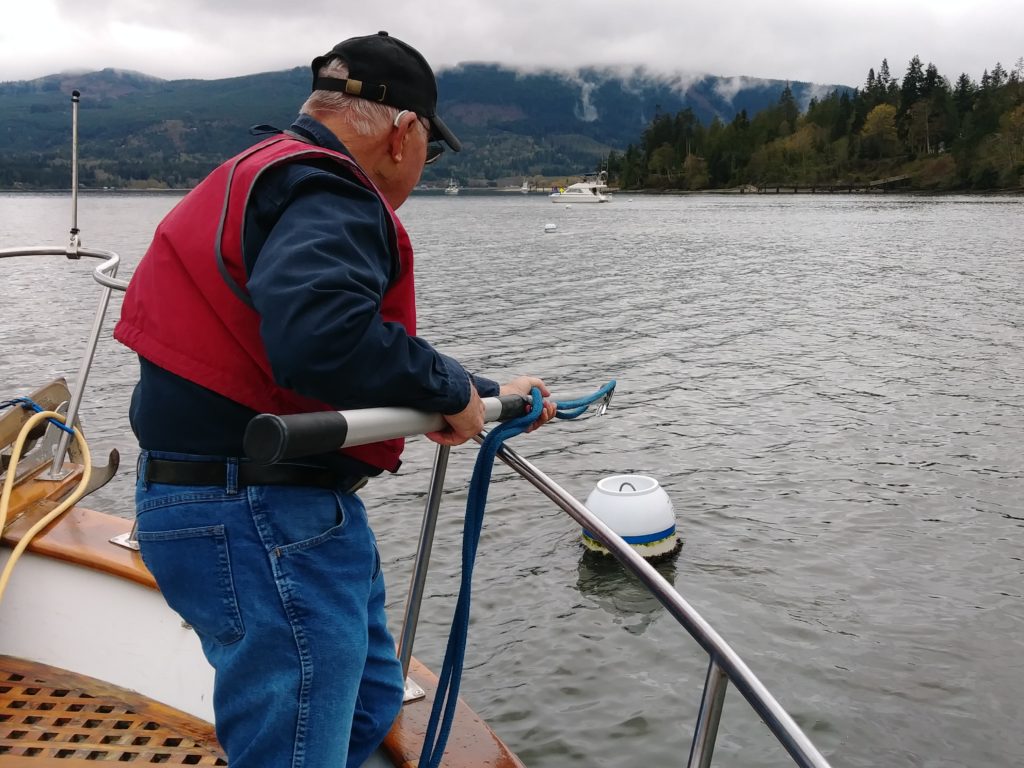
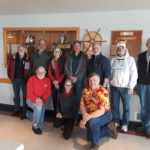
ADVANCED COURSES
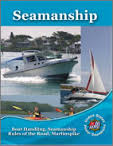
Boat Handling (BH) (Formerly Seamanship)
$70 / $140 non-member
Boat Handling is the recommended first course for those wanting to continue with boater training whether as power boaters or sailors. The training includes more about practical subjects such as navigation rules, boat control, boat care, operating a boat under normal and more challenging conditions, what to do should an emergency arise or weather conditions change, nautical know-how and tips for increasing enjoyment while on the water. For those that want to learn even more, this course provides a strong foundation for follow-on navigation and fun-enhancing courses such as Cruise Planning and Sail. An on-the-water component is offered at no additional cost that provides students real experience combining theory and classroom learning while dockside and underway on USPS® volunteer boats similar to what the students have or want to purchase.
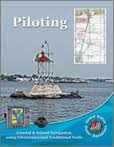
Marine Navigation (MN) (Formerly Piloting / Inland and Coastal Navigation)
$90 / $180 non-member
This is the first navigation course and introduces the fundamentals of inland and near-shore navigation. Topics included are descriptions of the different types of marine charts, US Coast Guard and other aids to navigation, the boat’s compass, basic GPS and use of electronics for navigation, planning and monitoring courses, and back-up methods to use if your electronics stop working. An on-the-water component is offered at no additional cost that enables each student to experience classroom and theoretical concepts in action – including radar, GPS, and other electronics – while on the water on USPS® volunteer boats or student boat.
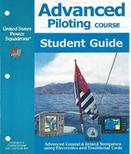
Advanced Marine Navigation (AN) (Formerly Advanced Piloting)
$90 / $180 non-member
This course builds on the skills learned in Piloting and teaches how to navigate when going further outside of your normal boating waters. Topics include course planning with electronics, position finding with electronics and without, methods for predicting tides and tidal currents and their effect on your boat as it moves through the water, more advanced use of GPS systems, the more extensive use of radar, and other electronic navigation techniques. Similar to piloting, you also will learn back-up methods should your electronics stop working. An on-the-water component is offered at no additional cost that enables each student to experience classroom and theoretical concepts in action – including more radar, GPS, tides and current displays, and other electronics – while on the water on USPS® volunteer boats or student boats.
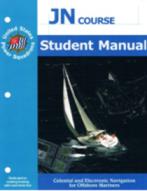
Offshore Navigation (ON) (Formerly Junior Navigation)
$120 / $240 non-member
Junior Navigation is the first of two courses that train boaters for offshore navigation – out of sight of land and with or without a working GPS unit. It is designed as a practical “how to” course. In this course you learn about boating beyond sight of a shore and what needs to be done to ensure enjoyment and successful trips of greater distances across open bodies of water. There is also the introduction to the back-up method of celestial navigation using a sextant and the sun to find your boat’s position anywhere on Earth. Topics include: Precise time determination, Nautical Almanac use, sextant use, position calculation from sun sightings, special materials (charts and plotting sheets) needed for offshore navigation, and procedures and routines needed for navigating your recreational boat offshore. An offshore on-the-water component is offered that will let each student experience the challenges and confidence-building skills resulting from offshore navigation with and without a functioning GPS unit.
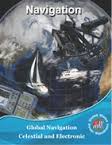
Celestial Navigation (CN) (Formerly Navigation)
$195 / $390 non-member
Once Junior Navigation has been mastered; this final navigation course continues the student’s celestial navigation knowledge by teaching the inclusion of celestial bodies in addition to the sun. For example, the moon, other planets, and stars that are available for confident offshore position finding. This course also deals with electronic software tools that can be used both to plan and execute an offshore voyage. Students learn to reduce celestial body sights by the Law of Cosines method and by the Nautical Almanac Sight Reduction (NASR) method. Planning for celestial-sight taking is an essential technique. The course includes a chapter on using software-based voyage planning tools and a complete navigation program. The final chapter of the course challenges the students with a practice cruise from Seattle to Hawai’i that uniquely integrates the separate topics of the course and demonstrates how an offshore voyage would be conducted. An on-the-water component for those students that want to experience celestial navigation while on board a vessel sufficiently far from land to enable valid practice of the theory and skills learned in the classroom. This activity will be conducted on the students own or a USPS® volunteer boat of sufficient size so as to be a safe and stable platform for the students and instructors.
ELECTIVE COURSES
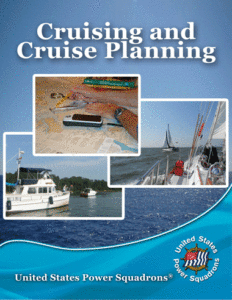
Cruise & Cruise Planning (CP)
$70/ $140 non-member
This course prepares you and your boat for a cruise, whether for a day, a week, a month or longer. Whether you are going to cruise on rivers, lakes, the coasts, or across the oceans, very valuable information is provided by those who have been there. The topics discussed are: planning the voyage, financing the voyage, equipping the boat, crew selection, provisioning, voyage management, navigation planning, weather, communications, entering and clearing foreign and domestic ports, anchors and anchoring, emergencies afloat, medical emergencies and security.
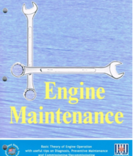
Engine Maintenance (EM)
$70 / $140 non-member
The Engine Maintenance course is intended to help recreational boaters understand their propulsion systems whether they are outboards, inboards, stern drives, or jet drives. You don’t have to be an engineer or mechanic to benefit from this course. You will learn about marine propulsion systems, basic engine principles, engine components; controls, instruments and alarms, marine engine maintenance, and steering systems. In addition, you will learn about cooling and exhaust systems, lubrication, fuel and air induction systems, ignition systems, electrical and starting systems, power trains, and trouble shooting. It concludes with a chapter on emergency repairs afloat. Included is a useful chapter on winter storage (with a 25 step winterizing checklist) and spring servicing before launching for the boating season.
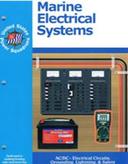
Marine Electrical Systems (ES)
$70 / $140 non-member
This course covers the properties of electricity and the practice of wiring your boat for both DC and shore power (AC). Galvanic and stray current corrosion are covered, as is lightning protection. The course manual concludes with a chapter on troubleshooting and repairs. This has been found to be extremely helpful to make boaters feel more comfortable and safe when maintaining their boat’s electrical system.
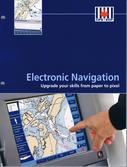
Electronic Navigation (NS) (Formerly Marine (Electronic) Navigation Systems)
$70 / $140 non-member
This course goes deeper into electronic navigation systems than other courses. Topics and equipment covered include modern GPS chartplotters, the Automatic Identification System (AIS), up-to-date descriptions of electronics such as radar, depth sounders, sonars, autopilots, computers for navigation, smart phones and tablets for navigation, troubleshooting and maintaining your electronics, and so forth.) Newer devices such as night vision aids also known as Forward Looking Infrared Systems are covered. In addition, a chapter on networking will demystify the connection of all these devices so boaters get the maximum enjoyment out of their boat’s electronic navigation systems.
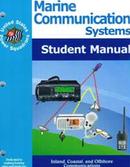
Marine Communication Systems (CS) (Formerly Marine Communications)
$70 / $140 non-member
This course covers everything you need to know about on-board communications. It begins with a brief history of radio communications and an explanation of the various types of marine radios, focusing especially on the VHF/FM radio. Important radio operating procedures are included as well as Federal Communication Commission rules and licensing procedures. If you are an offshore, deep water boater, options for long range communications are covered. A helpful troubleshooting and communication system maintenance chapter is included.
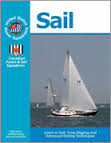
Sailboats & Sailing Theory (SA)
$70 / $140 non-member
Introduction to sailboats and sailing principles. Whether you are a novice, intermediate or expert dreaming about sailing to exotic ports in distant islands, this course will provide you with more knowledge about sailboats and what makes them so popular. Topics covered include the types of sailboat rigs and sail plans, sailboat design and hull types, sails, standing rigging, running rigging, wind effects, getting ready to sail, sailing upwind, sailing downwind, sailboat docking and anchoring, and “marlinspike” for sailors. Also included are sailing-specific navigation rules, wind forces, stability, balance, sail shape, rig tuning, steering and helmsmanship, and spinnaker handling. The course concludes with descriptions of heavy weather sailing, storm conditions, sailing safety, and for enthusiasts, sailboat racing and race management. An on-the-water component is offered at no additional cost that enables each student to experience classroom and theoretical concepts in action.
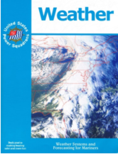
Weather (WE)
$70 / $140 non-member
This course will develop the boater’s awareness of weather phenomena, and show how to maximize boating pleasure with knowledge about the weather. Topics included in this course are the atmosphere, the difference between climate and weather, what causes weather, the movement of weather over the earth, and a whole lot more about weather forecasting. After completing this course, the boater will have the skills to understand weather forecasts and predictions, to make better instrument and visual observations from the boat and to know what it means when radio or television “weathermen” talk about air masses, fronts, storms, and fog. Throughout the course the instructors will show how to make observations and predications before the boaters have to apply their new skills on the water.
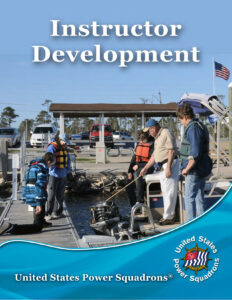
Instructor Development (ID
Emphasis is on enhancing presentation techniques and instructor skills. The course has been designed to demonstrate interactive teaching methods focused on adult learning. Students prepare lesson plans and give three presentations to their peers utilizing a variety of teaching aids and presentation skills.
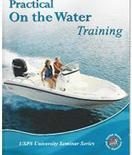
Practical on the Water Training
8 hours/$60
*Boat handling skills for new and experienced boaters
*One Eight Hour Day (4 hours in the classroom, 4 hours on the water)
*Basic Powerboat Handling - Same skill as BOC-IN
*On-the-water taught by a BOC-IN or POTW Certifier
*Course includes course book and DVD of the skills"
*Students register and pay through HQ-800
No charge for member (If a member wants a copy of the Manual, the charge is $40) Charge for non-member is $80 which includes the Manual
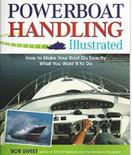
Power Boat Handling
$45
This seminar shows boaters how to depart and dock under a variety of conditions as well as all about trimming the boat underway.

Advanced Power Boat Handling
$50
Historically it took many years’ experience to be truly at ease and skilled at handling a powerboat. This skill was achieved over years of on the water trial and error experience. What about the rest of us? Here’s a good way to get there quickly and safely. This seminar is a three-part series: Close Quarters Maneuvering, How Boats Behave and Seas, and Handling at Sea. The seminar shows you how your boat will behave and why in response to your controls. You’ll understand what the pro’s have learned the hard way. This gets you there faster, and with confidence. Then, on the water you can visualize your actions and execute them easily. The seminar is often offered with on the water training for a complete experience.
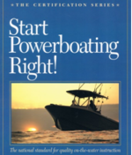
Boat Operator Certification
Membership Required
For those USPS® members who want to have their On-The-Water skills validated or refreshed, USPS® offers 4 levels of skill evaluations leading to certifications. The four levels of navigation competency are Inland, Coastal, Advanced Coastal and Offshore. Each level requires a combination of completed courses, seminars, emergency responses, and on the water skill demonstrations in vessels appropriate for the level. Certification provides an additional benefit to members who may want to charter, rent, or lease a boat (especially in a foreign country) and/or who are seeking insurance discounts based on their BOC achievements. Inland Navigator requires demonstrations of boat handling capabilities needed for small boat control. Examples of skills to be demonstrated are: steering precision through a slalom course, forward and reverse traversal on a range, approaching and departing from docks and mooring floats. emergency stops, anchoring, constant radius turns, and so forth.
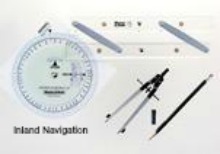
Inland Navigator
$60
Inland Navigator requires demonstrations of boat handling capabilities needed for small boat control. Examples of skills to be demonstrated are: steering precision through a slalom course, forward and reverse traversal on a range, approaching and departing from docks and mooring floats. emergency stops, anchoring, constant radius turns, and so forth
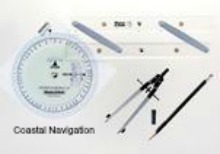
Coastal Navigator
$60
Coastal Navigator requires previous completion of Inland and demonstrations of route navigation along a developed series of waypoints with and without the use of electronics (without requires use of charts, clocks, ships compass, and plotting tools). More advanced anchoring and docking skills are also evaluated. A man overboard drill is conducted.
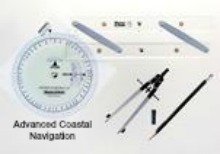
Advanced Coastal Navigator
$60
Advanced Coastal Navigator requires previous completion of Inland and Coastal and demonstrations of navigational skills and cruise planning skills and execution. A minimum three-day cruise is planned and evaluated. An on-the-water skill demonstration under limited visibility (night, rain, fog) and in area where other night traffic can be expected is required with all safety considerations exercised. An additional “man overboard drill” (MOB) including a quick stop and return to the MOB will be conducted.

Offshore Navigator
$60
Offshore Navigator is the highest level of the BOC program. The focus is on extended operation out of sight of land. Advanced Coastal Navigator certification is a prerequisite.